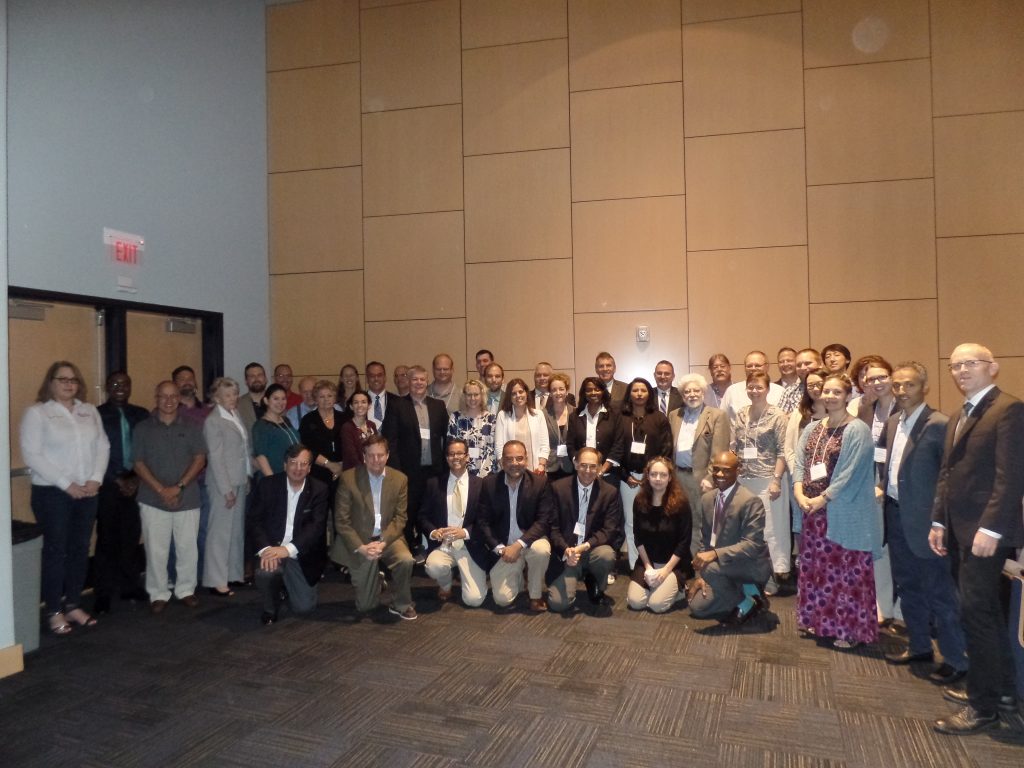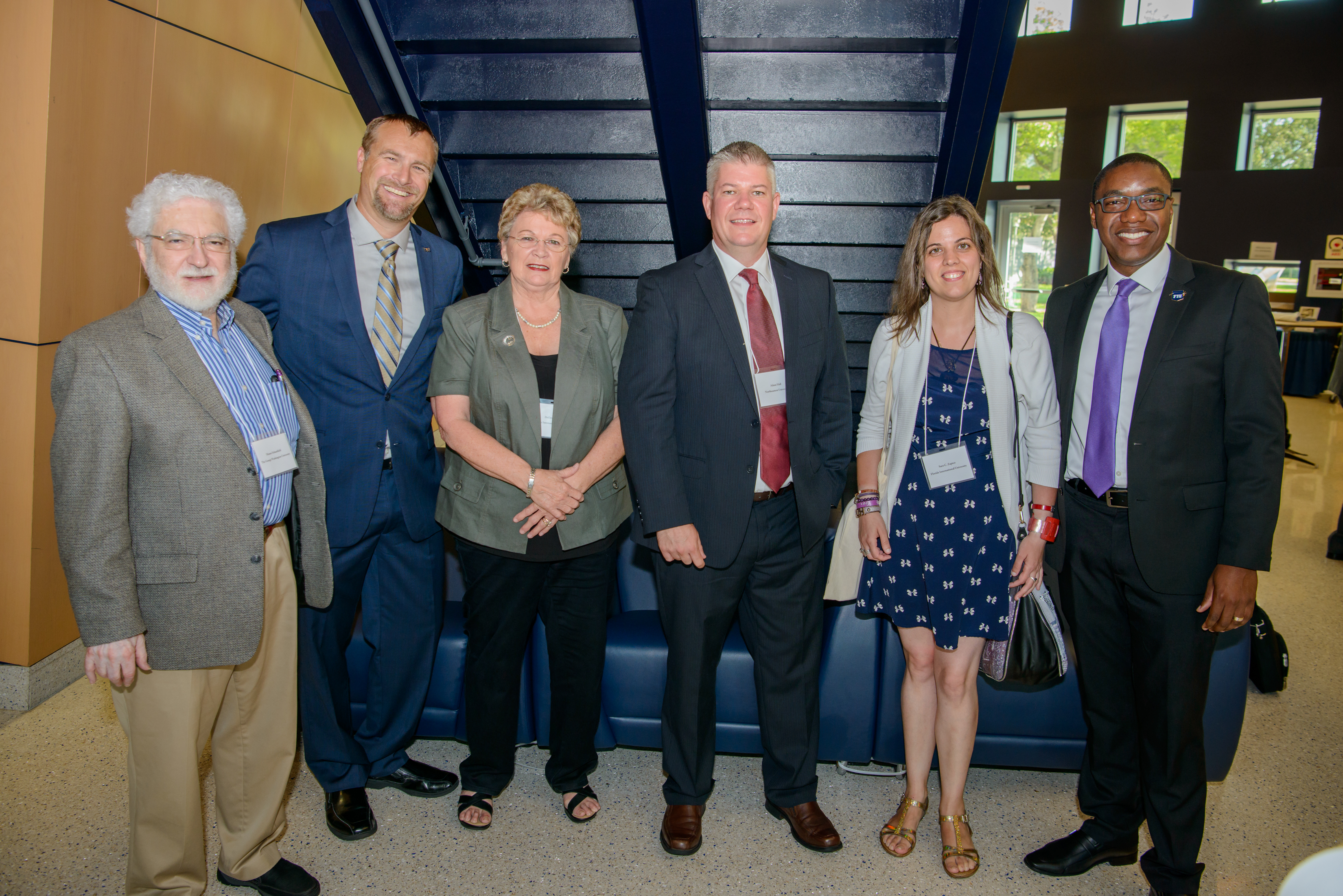When many people think of forensic science, they think of the dramatic and enticing TV crime shows that solve mysteries analyzing blood samples and fingerprints. While these may be aspects of a forensic scientist’s job, the field is much more comprehensive than that – relying on cutting-edge technology, research studies, and techniques to help find the answers among the muddled remnants of a crime.
Northeastern Director of the Core Mass Spectrometry Facility at the Barnett Institute Dr. Adam Hall is the Associate Director of the Center for Advanced Research in Forensic Science, a virtual center to innovate new research in the field of forensics. Northeastern’s involvement in this national project will be the start not only to many new research projects in areas like drug analysis and DNA repair, but also as part of an important collaboration, whose results can impact our society and the ability to efficiently and accurately solve crimes.
The Backstory
In 2009, the National Research Council (NRC) of the National Academies of Science (NAS) published a report highlighting the strengths and weaknesses of forensic science. Out of the many findings and recommendations made to bridge the gaps in the field, one of the main ideas was the need for more research.
And that’s where Northeastern comes in.
The NRC thought that universities could partner with government and private laboratories to advance research that could be applied to the work of forensic science practitioners. Five years later, Northeastern became part of an Industry/University Cooperative Research Center (I/UCRC) opportunity to develop a national research center for forensics, with funding from the National Science Foundation (NSF) and the National Institute of Justice (NIJ). With this initiative, Northeastern, as well as four other universities, came together to create a virtual center, with sites housed at each university. The Center for Advanced Research in Forensic Science (CARFS) was born with sites at The Barnett Institute of Northeastern University, Florida International University (FIU), University of South Alabama (USA), Texas A&M University (TAMU), and George Washington University (GWU).

Official logo for the Center for Advanced Research in Forensic Science (CARFS)
The Industry Advisory Board
This August, the Industry Advisory Board (IAB) for CARFS held their first meeting in Miami, FL at Florida International University. This was the first of many meetings of its kind that will bring together scientists from the five universities, many different companies and organizations, as well as members of government. Through biannual meetings, Industry participation will come from around the country, with large variations, as universities are responsible for bringing their own industry partners. Some were local to the universities, some larger scale. Agilent Technologies, IonSense, Cayman Chemical, and Empiriko Technologies were joined by federal organizations like the Federal Bureau of Investigation (FBI), the Drug Enforcement Administration (DEA), and even the Dubai Police. In total, twenty industry and government partners attended the inaugural IAB meeting for CARFS. These organizations came to learn about the many project proposals and to vote to provide funding for the ones most relevant to their work.

Government partners along with university participants, NSF, and NIJ at the first IAB meeting, held at FIU on August 14-15, 2017. Photo courtesy of FIU Imaging Services.
The Research
Between the five universities, 20 projects were presented, 19 of which were chosen to be funded. Research topics cover everything from studying advanced human scent identification, to epigenetic markers to an estimation of age-at-death for identification of human remains, to development of new technology to toxicologically screen for opioid adulterants.
Of the many projects presented, Northeastern professors successfully presented three.
Dr. Penny Beuning, Northeastern Associate Professor of Chemistry and Chemical Biology, presented her proposal on a method to repair DNA. With forensic DNA samples, what’s recovered from a crime scene, is often very non-ideal. Beuning’s research proposal described engineering proteins that can repair DNA before it gets amplified, so that if there are damages from environmental factors, they will be fixed prior to using those proteins to replicate the DNA to be analyzed. PhD candidate Tim Coulther, a member of Beuning’s lab group, will be involved in this research project as well.
Hall presented two unique research projects that have the potential to push discoveries in forensic and drug research fields.
The first was a collaboration with Dr. Jose Almirall, CARFS Director and Professor from FIU, studying the dynamic air sampling of gasoline residues using Direct Analysis in Real Time (DART) and a particular mass spectrometry system that very quickly analyzes a fire debris sample to identify what type of ignitable liquids were present at a fire scene. Emily Dunn, a fourth year Chemistry major will be involved with the joint Northeastern/FIU initiative.
The final Northeastern-presented proposal is exciting for Hall. Entitled “Metabolic Studies Utilizing ‘Liver on a Chip’ Technology”, this project will use mass spectrometry and other techniques to more deeply understand opiate adulterants. When toxicologists study drugs, they look at how your body metabolizes them and what metabolites are produced. In common drugs like heroin, cocaine, and marijuana, toxicology research is very thorough and well understood.
However, Massachusetts alone went from having on average of 550 opioid related overdose cases over the course of the last ten years to this year being on track for over 2,000 overdoses in the state. According to Hall, a contributing factor to the increase in opioid related deaths is the substances being cut into drugs like fentanyl and derivatives of fentanyl in heroin that lower the purity of drugs and allow dealers to make more of a profit. Fentanyl is an adulterant that has a biological effect on people when consumed, and is much more powerful than heroin itself.
The goal of his research is to look into and understand the metabolites of adulterants cut into street quality drugs like fentanyl. An end goal of the project will consist of evaluation of postmortem urine samples to test for different adulterant metabolites present in the sample. Through collection of these results, Hall hopes to create a profile for different counties throughout Massachusetts that can help to identify what impurities are coming from where. The work will be done in collaboration with Empiriko Technologies, a local company that developed ‘Liver on a Chip’ technology, which uses synthetic catalysts to understand metabolism processes and Cayman Chemical Company from Ann Arbor, Michigan that develops certified analytical standards. Using this, Hall and his team will be able to utilize the synthetic liver enzymes to produce metabolites of the drug adulterants that would be produced in a drug user’s body, in the absence of animal models. Sanjana Phatak, a first year graduate student will conduct studies during the course of this project with Dr. Hall.
“This research has important forensic and public health implications for society. The opioid epidemic is rampant in many states like Massachusetts, New Hampshire, and Ohio, and it’s a whole area of forensic science research which hasn’t been a focus of traditional investigations,” Hall said. “The project, rather than looking at the metabolites of the drug which are very well known, focuses on the metabolites of the adulterants in order to generate analytical profiles. There’s a lot of public health data available within the state on the areas most impacted by opioid overdoes. That’s not just because there are a lot of heroin addicts there – I believe it’s related to whoever’s cutting the drug sample with certain toxic adulterants in that area.”
The Future
With the majority of these proposals receiving funding, each site will begin to conduct research and the CARFS will meet in the spring of 2018 to share their updates with the involved organizations. Hall hopes to engage with other principle investigators at Northeastern whose research could have an impact on the future of forensics.

